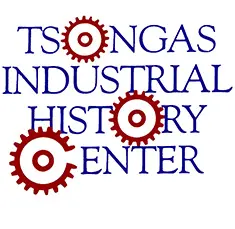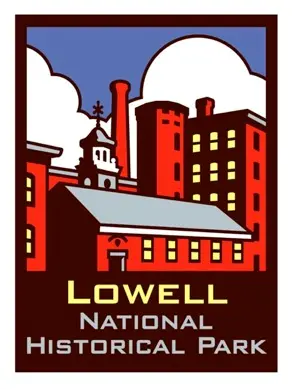- Field Trips
- Virtual Field Trips
- In-School Programs
- Extended-Day Workshops
- Materials for Rent/Purchase (and other online resources)
- Plan Your Visit
- Financial Aid
The Tsongas Industrial History Center supports and encourages the teaching of industrial history using site-based, hands-on experiences for over 40,000 students in grades 3 through 12 annually. All programs are aligned with Massachusetts and New Hampshire State Curriculum Frameworks.
Our location within Lowell National Historical Park allows students to explore historic cotton mills, 5.6 miles of canals, gatehouses, and worker housing. We use these resources to engage students in such topics as labor history, immigration, economics, textile production, globalization, technology/engineering, and impacts of industrialization on nature and society.
Financial Aid financialaid
If you need financial assistance to be able to bring your students on a field trip, please check with our staff when you call. Some financial aid for field trips may be available.
We may have available funding to reserve free Workers on the Line programs. This opportunity is available on a first-come, first-served basis each school year.
The Tsongas Industrial History Center also recommends applying for funding from the Massachusetts Cultural Council's Local Cultural Council Grants.
Teachers we know have also had success applying for field trip money from Target Field Trip Grants.
Grade Chart
| In-Person Programs and Virtual Field Trips | Grade 2 | Grade 3 | Grade 4 | Grade 5 | Grade 6 | Grade 7 | Grade 8 | High School | History and Social Studies | Science and Engineering |
|---|---|---|---|---|---|---|---|---|---|---|
| Bale to Bolt | ✔ | ✔ | ✔ | ✔ | ✔ | ✔ | ✔ | |||
| Change In The Making | ✔ | ✔ | ✔ | ✔ | ||||||
| Community Connections | ✔ | ✔ | ||||||||
| Engineer It! | ✔ | ✔ | ✔ | ✔ | ✔ | ✔ | ✔ | ✔ | ✔ | |
| Power to Production | ✔ | ✔ | ✔ | ✔ | ✔ | ✔ | ✔ | ✔ | ||
| River as a Classroom | ✔ | ✔ | ✔ | ✔ | ✔ | ✔ | ✔ | |||
| Workers on the Line | ✔ | ✔ | ✔ | ✔ | ✔ | ✔ | ✔ | |||
| Yankees and Immigrants | ✔ | ✔ | ✔ | ✔ | ✔ | ✔ | ✔ | |||
| Mill Girls: Life and Work in an Industrial City | ✔ | ✔ | ✔ | ✔ |



